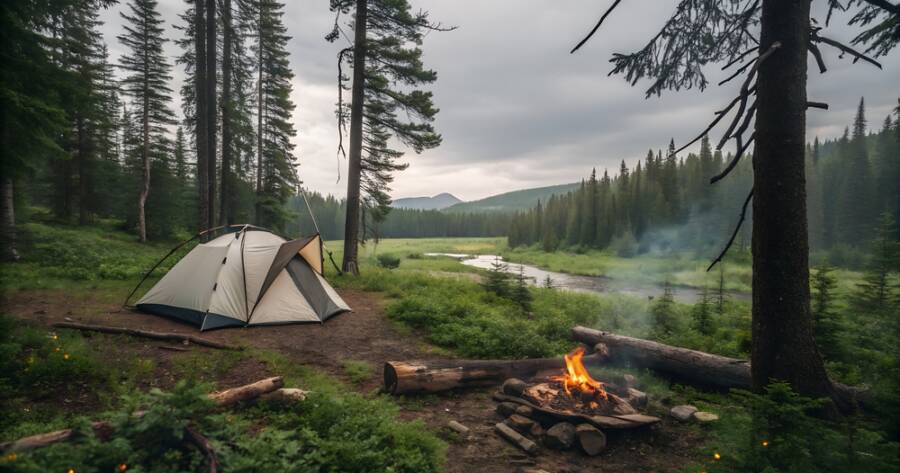Spending a night outdoors has a way of refreshing the mind and resetting the spirit. Whether you drive right up to your campsite or hike deep into the wild, the experience can be rewarding in different ways. Some campers crave creature comforts, while others seek solitude and silence. The magic of camping lies in finding the style that suits your personality, preferences, and pace. Both car camping and backcountry escapes have something special to offer.
Comfort in Convenience: The Case for Car Camping
Car camping opens up the outdoors without sacrificing comfort. Being able to pack your gear in the trunk and park steps away from your tent makes setup a breeze. You can bring extra pillows, a cooler full of snacks, and even camp chairs without worrying about weight. It’s ideal for beginners, families, and anyone who wants to spend more time relaxing and less time hauling gear.
Amenities like restrooms, potable water, and nearby towns add a layer of security. If the weather turns or plans shift, your vehicle is a built-in backup plan. Car camping lets you enjoy nature with a lighter mental load—perfect for recharging in the outdoors without roughing it too much.
The Wild Call: What Makes Backcountry Camping Special
Backcountry camping is for those who crave a deeper connection with nature. Getting away from established campgrounds means fewer people, more silence, and the thrill of remoteness. The journey—whether a few miles or several—becomes part of the experience. It’s about self-sufficiency, planning ahead, and carrying everything you need on your back.
Without picnic tables and fire pits, backcountry campers rely on Leave No Trace principles and minimalist setups. It’s not always comfortable, but it’s undeniably immersive. Every sunrise feels earned, and each trail tells a story. For many, the solitude and simplicity offer a kind of peace that’s hard to find anywhere else.
Pros and Cons: Weighing the Tradeoffs
Car camping excels in ease and flexibility. You can make last-minute decisions, adjust quickly, and enjoy longer stays with less effort. However, campgrounds can be crowded, noisy, and feel more like neighborhoods than nature escapes. Sites often need reservations, especially during peak seasons, which limits spontaneity.
Backcountry camping offers true solitude and stunning scenery, but comes with challenges. Navigating trails, managing gear weight, and being prepared for emergencies require experience and planning. It’s not ideal for everyone, especially those with limited mobility or time. Yet for seasoned or adventurous campers, the payoff is worth the extra effort.
Gear & Packing: How the Essentials Differ
Packing for car camping allows for comfort-focused gear. You can bring full-sized air mattresses, large tents, and even a cast-iron skillet. It’s less about minimalism and more about maximizing the experience with what you love—whether that’s games, gourmet camp food, or extra blankets.
In contrast, backcountry gear is all about weight and function. Every item must earn its place in your pack. Think compact sleeping bags, lightweight stoves, and multipurpose tools. Planning meals and water filtration becomes part of the prep. It can feel intense at first, but learning to carry just what you need builds confidence and resilience.
Choosing Your Fit: What Feels Right for You?
If you enjoy planning short getaways, love cozy camp setups, and prefer convenience, car camping might feel like a perfect fit. It’s social, comfortable, and adaptable. On the other hand, if you find joy in physical challenge, crave silence, or want to disconnect deeply, backcountry camping might call to you more strongly.
Your ideal fit might even shift with the seasons, your mood, or your camping companions. It’s not a matter of choosing one forever, but learning what you need from the outdoors—and letting your experience grow from there.
Both Paths Lead to the Stars
Whether you’re zipping up a tent by your car or hanging your food from a tree in the woods, both styles of camping offer a chance to slow down and reconnect. The path you choose depends on what kind of peace you’re looking for—ease and comfort, or distance and stillness. One isn’t better than the other; they’re just different ways of meeting the same sky, breathing the same fresh air, and coming home a little more grounded than when you left.

